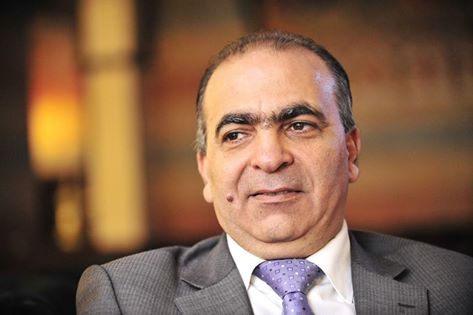The signing of the ceasefire agreement across all Syrian territory, as the Free Syrian Army spokesman presented, was to Syrians a light suggesting hope that their long tragedy may end. It may meet with support from many segments of Syrians in hopes that it will be the beginning to the end of the disaster which has struck Syria and its people since the regime and other regional forces succeeded in transforming its popular revolution into a war which has destroyed Syria and killed and displaced millions of Syrians.
At the start of the negotiations which are being held between representatives of armed opposition groups close to Turkey and representatives of Russian forces, many Syrians had some doubts, especially after the Turkish-Russian agreements about Aleppo and the death and destruction which occurred there. However, Iran and the regime were kept away and the Russian negotiators met with representatives of groups which Russia has described as terrorists, such as Jaish al-Islam (Army of Islam) and Ahrar al-Sham. Then the so-called legal counsel to the FSA emerged and announced the agreement had eliminated many doubts and caused a wave of optimism which it was easy to notice among many Syrians. The spokesman for the negotiating groups said that the ceasefire agreement includes all Syrian territory without any exceptions but ISIS centers, and that it would immediately begin to prepare to form an opposition delegation for the Astana negotiations without the intervention of any country or party in the composition of the delegation which the opposition will form.
This optimism continued even after the beginning of the breaches on the day following the signing of the truce, and especially after the rebel groups gave the Russians a deadline of five hours to apply pressure to stop these breaches, then the announcement that these breaches had stopped because Moscow had been able to compel the regime and Iran’s mercenaries to comply with the agreement and that the truce will continue according to the items released by the groups’ representatives. All for it to be shown in the end that ending the war was no more than a daydream we tried to convince ourselves was real.
It seems that the real items which were agreed to in Ankara between the Russians and the rebel groups was different from that which the FSA legal council released. This was expressed clearly when Colonel Sergei Ivanov, representative of the Hemeimem center for reconciliations, announced that striking the Barada valley, the eastern Ghouta and all the areas in which there were Jabhat Fatah al-Sham (formerly Nusra Front) fighters was not a breach of the items of the ceasefire agreement — the same article which it was said more than once that the Russians were clinging to when they were talking about negotiating a total ceasefire, and this is what the rebel groups said (I don’t know if they have a lack of experience or there is some kind of self-deception) that they had withdrawn from the negotiations and would not return until the Russians agreed to cancel it out.
It remains for us to find out why those said to be representatives of the political bureau of the FSA behave in this way and with this lightness toward an issue of such importance. There has been much news that has touched our imaginations and coincided with our wishful thinking, and we try to trust it as soon as it appears on social media or it is published by outlets owned by Iran or Russia or others within the psychological war which many regional and international forces are waging on our people who are eager for peace and security.
No trusted source has confirmed that the communications between Putin and Rouhani was around ending the assault of Iran’s Lebanese (Hezbollah) mercenaries on the Barada valley — but rather what Russia announced that the communication was around the major and effective Iranian role in the Astana talks.
Till today, there is nothing to support the rumor that there is a major Iranian-Russian split or that there are Russian efforts to expel Iran and its mercenaries from Syria.
There is nothing to support what some are trying to circulate that the Russians have prevented Bashar from visiting Aleppo or delivering a victory speech or giving a New Year’s address.
The announcement of the end of the war a new trick in which friends and enemies participated in arranging, and our eagerness to stop the shedding of our blood contributed to making us trust it and circulate it. However, the successive disappointments can only teach us to step back a bit before we try to taste the food which is given to us or work with an issue with the importance of stopping the war more seriously than this farce we have witnessed over the last few days.
Responsibility for the information and views set out in this article lies entirely with the author.


